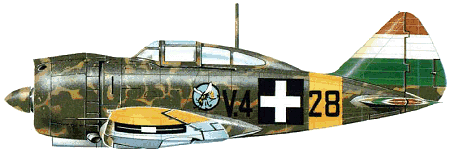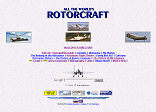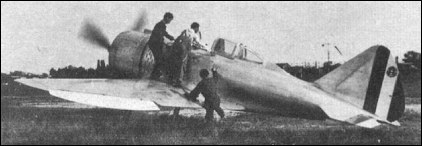|
| Officine Meccaniche Reggiane SA began
development of a single-seat
fighter which was based very closely
on the US Seversky Aircraft Corporation's
P-35 designed by Alexander
Kartveli. Competitive evaluation
against the Macchi MC.200 resulted in
this latter aircraft being ordered into
production for the Regia Aeronautica,
although the Reggiane Re.2000 had
shown itself to be superior in manoeuvrability,
even when flown against the
Messerschmitt Bf 109E. The type was
ordered by the Hungarian government,
which also acquired a manufacturing
licence. Re.2000s were supplied
also to Sweden, being operated until
1945 by the Flygvapen under the designation
J.20. And though rejected by
the Regia Aeronautica, the Italian navy
acquired 12 Re.2000 Serie II fighters
especially strengthened for catapult
launching, followed by 24 Re.2000
Serie III aircraft with increased fuel
capacity for deployment as long-range
fighters.

| lxbfYeaa, e-mail, 14.03.2024 06:36 20 reply | | Alberto Rizzi, e-mail, 24.02.2018 16:30 Not chosen for mass production above all because of its tanks in the wings and other reliability problems, the Re. 2000 (Hawk) "Falco I" was anyway the most outstanding among the "Serie 0" class fighters. He had good export success (above all in Sweden and Hungary), while the 28 machines built for Regia Aeronautica had just sporadic combat occasions chiefly in Southern Italy. Employed in patrol and escort cruises over the Sicily Channel, it was able to shoot down a single Bristol Blenheim in its career; while its (low) losses happened above all because of engine troubles and failures of other components.
Much more significant the war tasks for the so called "Héja" (Goshawk) in Hungary Aviation and for its development the MAGAV "Héja II", thought as "interim fighter" in waiting the Bf 109, meanwhile solving the several reliability problems of the original. The "Héja II" had a new and little improved engine, new 12,7 mm (0.50") machine guns (the two Breda-SAFAT often jammed) and improved self-sealing tanks.
Both the types where sent to the Eastern front as escort fighters for Axis recon aircraft against the Russian; and in homeland as interceptors against the allied bomber raids over Hungarian towns and airports. Duties that the "Héja" fulfilled nearly until the end of W.W. II without praise or blame. reply | | Barry, 06.09.2016 14:01 186 built plus those under license.
Reggiane Re.2000 Series I
Power plant 1 x 986 h.p. Piaggio P.XI RC 40 fourteen cylinder two row radial
Span 36'1" Length 26'3" Height 10'6" Wing area 220 sq ft
Empty weight 4,585 lb Loaded weight 6,259 lb
Max speed 329 mph at 17,400 ft Cruising speed 273 mph
Range 340 miles Service ceiling 36,745 ft
Armament 2 x 12.7 mm Breda-Safat machine guns reply | | greg, e-mail, 12.03.2015 20:51 'short & fat' is not always bad, look at the hellcat & bobcat... reply | |
| | Klaatu83, e-mail, 08.10.2011 02:59 "This plane was really short and fat."
Very like the Seversky P-35 from which it was derived, except that the main landing gear of the Re.2000 was more like that used on the Curtiss P-36 /P-40 family of fighters.
The Hungarians built the Re.2000 under license for their Air Force. I believe the son of Admiral Horthy, who was Regent of Hungary at that time, was killed while flying one. reply | | guba, 18.06.2011 10:34 if u can have a isometric view of the plane it will look more appealing reply | | Ronald, e-mail, 05.09.2008 09:06 Interesting that the Reggiane and Republic families of fighters have a common ancester: Seversky. The P-35, P-43 Lancer, P-47 Thunderbolt in one branch and the Falco, Ariete, and Sagittario in the other. What a contrast! And both superlative. reply | | 3VI, e-mail, 16.10.2007 10:13 So, if you think that the color drawning above is out of proportions, you are wrong!!! This plane was really short and fat. Not what i call a beaty at all... reply | | anant, e-mail, 02.10.2007 10:50 if u can have a isometric view of the plane it will look more appealing reply |
|
Do you have any comments?
|
| 
COMPANY
PROFILE
All the World's Rotorcraft
|







